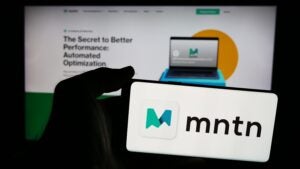 Despite a revenue dip in Q1 2015, it appears that Millennial Media is beginning to make good on its turnaround story.
Despite a revenue dip in Q1 2015, it appears that Millennial Media is beginning to make good on its turnaround story.
Although Millennial saw its year-over-year revenues fall off from $72.6 million to $63.2 million in Q1 – revenue was also down quarter over quarter, from $86.4 in Q4 – the mobile ad tech platform beat its guidance in Q1 2015 on its managed media business, with $53.8 million in managed revenues this quarter.
CFO Andrew Jeanneret attributed the overall revenue decrease, in part, to expected seasonality around brand spend in Q1. Millennial’s year-over-year loss was not addressed, although seasonality could have had an impact.
Millennial CEO Michael Barrett remains bullish on Millennial’s programmatic prospects, pointing to the “early success” of the Nexage integration. The company bought mobile exchange Nexage to bolster its programmatic business. The $107.5 million cash and stock deal closed in December. Although platform revenue in Q1 was $9.4 million – a number that includes Nexage exchange activity – gross billings for the platform side of the business were $21.6 million.
The technical integration with Nexage is “substantially complete,” said Barrett, who noted that nearly all of Millennial’s inventory is now flowing through the exchange. Barrett also called the “early synergies” between Nexage and Millennial “very promising.”
Millennial’s new software development kit (SDK), which consolidates both Millennial’s exchange functionality with Nexage’s into a single package, is installed in roughly 65,000 apps globally. The kit will “enable new creative capabilities for our managed business and unlock most of them to the exchange,” Barrett said, as well as enable “new mediation capabilities to help maximize yield” for Millennial’s 60,000-plus supply partners.
“[This SDK] provides the direct handshake that gives us information about the device and, by extension, the user,” he said.
Barrett also alluded to an upcoming announcement around a “pretty breakthrough ad product in the not too distant future that we think is going to have a very positive impact on the second half of the year.” Although details were not forthcoming, it appears that the product will help bolster Millennial’s performance business.
Barrett had previously referred to Nexage as the missing piece that would complete Millennial’s “vision of creating an end-to-end full stack” solution alongside its existing DSP and the DMP it brought on board through its 2013 Jumptap acquisition.
In Barrett’s view, Millennial’s independence has been “a real differentiator versus the black box of some other publishers.” Although he didn’t name names, Facebook was clearly one of the elephants in the room.
According to Barrett, Millennial signed a $5 million deal with a large unnamed retail client in Q1 to target more than 1,500 proprietary customer segments. Millennial passes back the raw data back to the retailer, which allows the client to conduct its own attribution modeling for in-store sales.
“There is no targeting better than a client’s own CRM data and they appreciate our transparency,” Barrett said.
In terms of the competitive landscape, Barrett said he doesn’t look upon Facebook, Twitter, Google or Apple as threats that soak up the demand Millennial is looking for.
“[They] have been formidable competitors and continue to be formidable, [but] … we’re competing with them based upon some of our unique selling propositions, chiefly our ability to be mobile specialists and our in-app expertise coupled with our independence and our full-stack capabilities.”
Barrett said he’s noticed many of Millennial’s brand clients consolidating their spend around partners that have multiple capabilities and solutions under one roof.
“They want fewer partners who can deliver and they are willing to commit higher spend levels for greater efficiency,” Barrett said.














